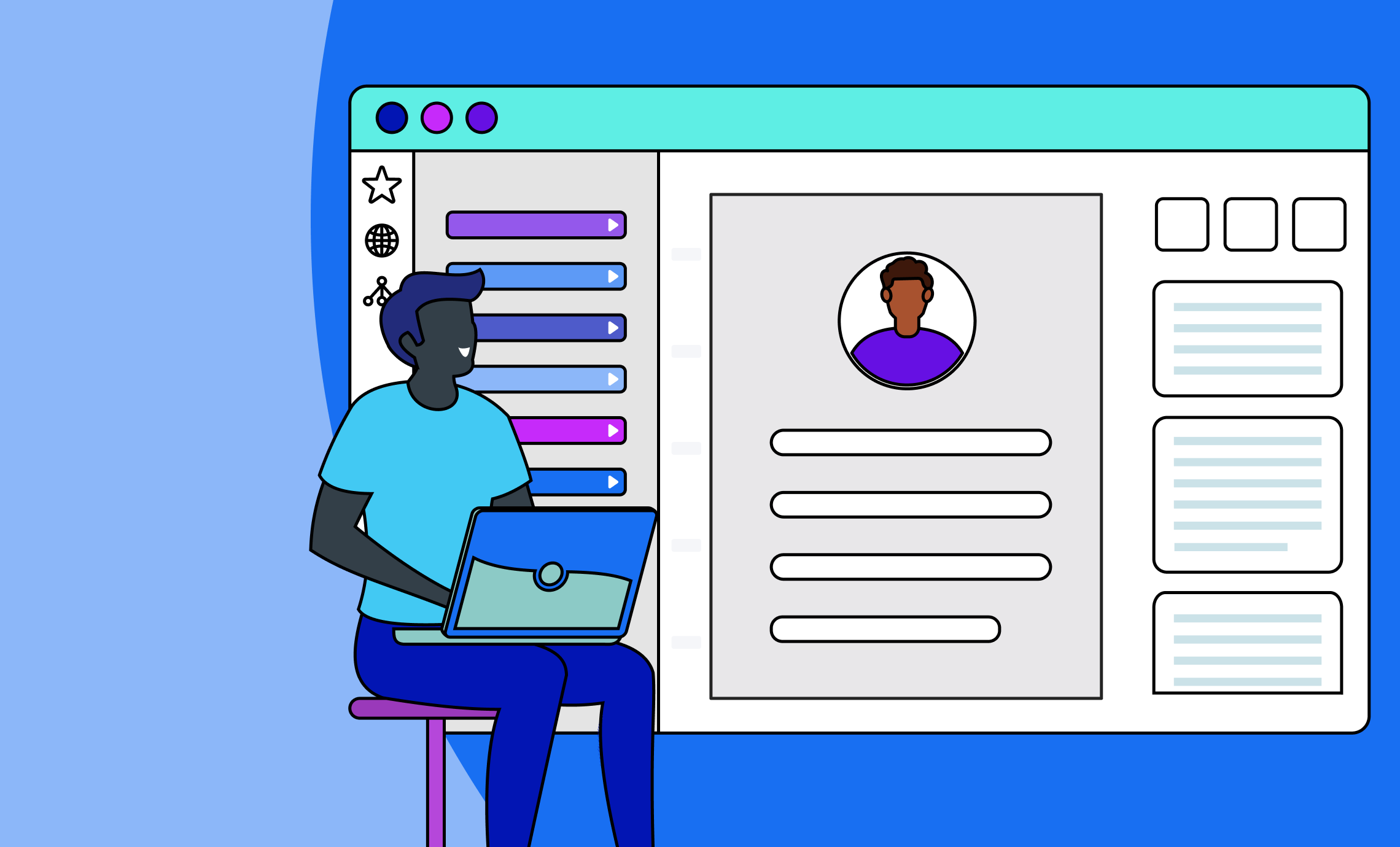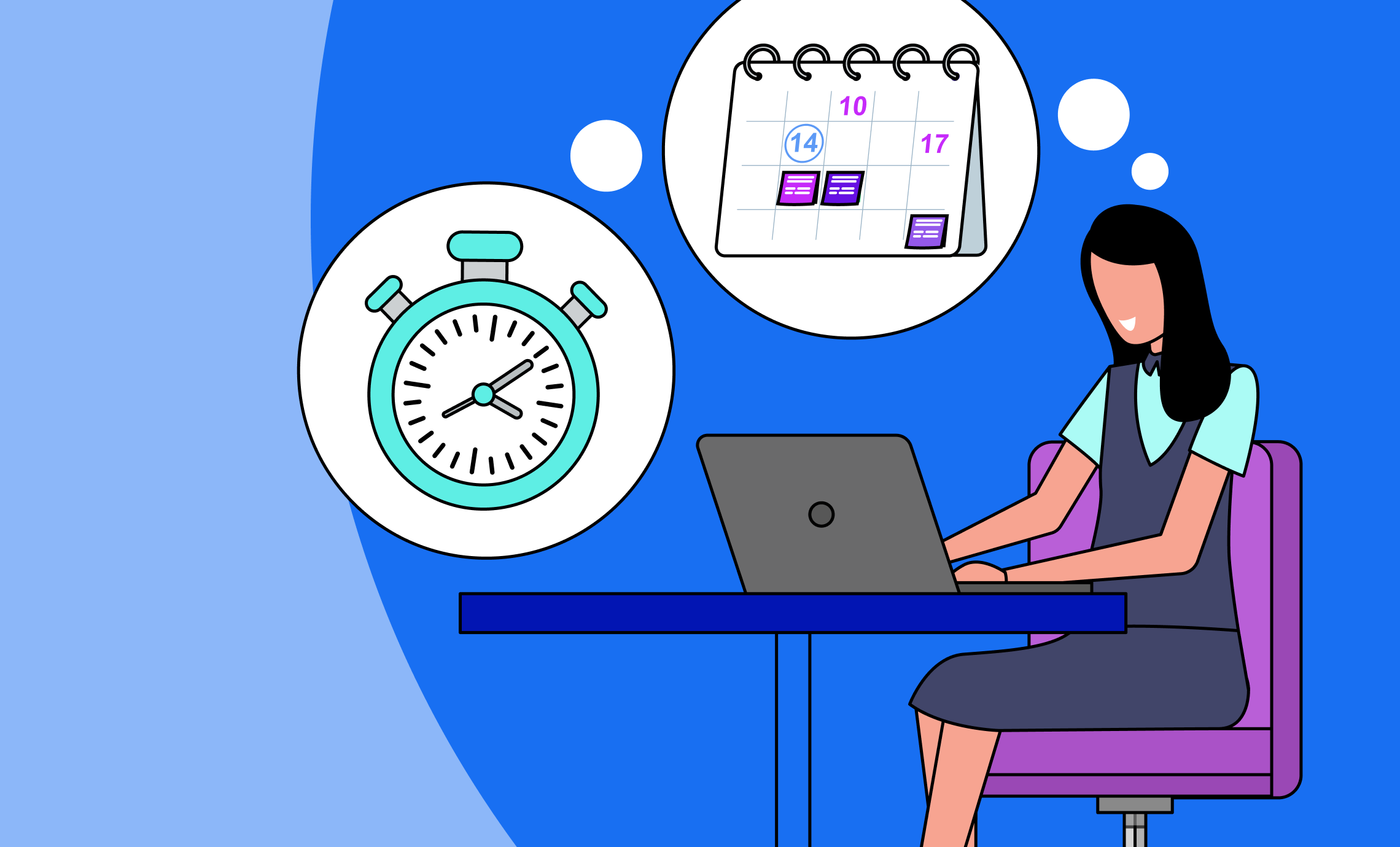Help promote professional development and offer networking opportunities. If you want to ensure a successful conference, you will need to know how to plan a conference well.
From establishing your conference goals and choosing a conference venue to setting an event budget and promoting the conference, there are several tasks you need to accomplish. Read on to learn how to organize a conference and what technology solutions you can use to hold a memorable and meaningful conference.
Define Conference Goals & Objectives
Planning a conference starts with defining your goals and objectives. This is a crucial step because it lets you craft the right strategies that can help realize your conference goals. No matter the size and scope of the conference, you must have an expected result or reaction from your audience. To help determine your conference objectives, refer to these kinds of questions:
- What type of participants do you aim to attract?
- How many people do you want to attend the conference?
- What do you want your attendees to learn from the conference?
- Are you aiming for a profit? How much is your desired profit?
- How much are the tickets?
- What value do you want to offer to your audience?
- Which speakers or organizations will be suitable for the conference?
- How will you make sure the conference reflects your brand?
By asking yourself these questions, you will know your priorities, who your target audience is, and what outcomes you expect. Since you know where you are going, you and your team can stay focused on achieving your conference goals.
Choosing the Right Conference Venue
Another crucial part of conference planning is choosing the conference venue that matches your needs and preferences. You need to consider several factors, like location, transportation, budget, and availability. Is your chosen venue close to hotels or local amenities so guests staying overnight are well-rested? Is the place close enough to the airport for attendees from distant places? How about the venue’s proximity to public transport? Or will the guests easily find parking?
Moreover, you need to consider if there’s Wi-Fi access for all attendees. Charging outlets, good phone signal, and proximity to restrooms are important too. The venue should also offer comfortable seating for your guests. Consider attendees with mobility needs, including assistive doors and wheelchair ramps.
Of course, you need to find a conference venue that is within your budget. Find out about hidden costs, including parking, Wi-Fi, outside suppliers, gratuities, and taxes. See what aspects can be negotiated. There may be free accommodation for the organizing committee, discounts on delegate rooms, airport shuttles, or even free coffee.
Furthermore, do not forget to check availability when choosing a venue so you do not waste time and other resources. It is also better to choose a date that does not conflict with other major events in the industry. This way, you can get the full attention of your attendees.
Setting a Conference Budget & Tracking Expenses
Your conference budget is also instrumental in the success of your event. That is why you need a detailed budget for all your expenses. These include the following:
- Venue rental (room, hotel, auditorium, university building, etc.)
- Catering
- Marketing
- Technology or equipment
- Permits and licenses
- Speaker fees
- Print materials
- Paid staff
- Catering
- Transportation service
- Miscellaneous expenses (giveaways, decor, and more)
There may be a lot of fixed and variable costs involved in planning a conference. However, there are also several ways to help reduce the costs and make the most out of your conference budget. For example, you can opt for a more affordable venue. Or you can use cheaper materials.
Moreover, you may find people who will volunteer for certain tasks. For example, younger individuals may enjoy working on decorations. You can also find sponsors. Reach out to prospective sponsors who share the same values or have funded similar events. In your sponsorship proposal, include a clear explanation of sponsorship benefits, an insight into your event experience, and how sponsors will be presented throughout the event.
Apart from creating a detailed budget, make sure to track your expenses. Use budget tracking tools such as those that we offer at Attendee Interactive. This way, you can easily monitor all your expenses and stay within the allocated budget. You can also make informed decisions and make necessary adjustments along the way if needed.
Choose Relevant and Engaging Speakers
Conference speakers can make or break your event. Hence, you should be careful in choosing your keynote speaker. When it comes to the conference planning timeline for finding speakers, you should be able to choose them six months before the event. Select someone who is knowledgeable and experienced in the conference topic. They should be able to address your guests’ pain points.
At the same time, they must also be engaging enough to keep the attendees invested and motivated when it comes to listening to them. You would not want to have a lineup of speakers that will only bore the audience or make them want to leave even before the end of the conference.
Perform enough research, including watching their previous speeches, reading their testimonials, and even checking their social media. It is even better if you witness them speak in the flesh. This way, you will see whether they are a great fit for your conference and they can meet or exceed your expectations.
To help you pick the right speaker, think about the main goal of the event and if that person can help satisfy that goal. Consider your audience and whether the speaker resonates with the type of audience you have.
Moreover, factor in your budget. Is their speaker fee beyond your budget or would you be willing to spend more on a well-known speaker? Expect higher costs for speakers who are industry experts, influencers with a huge following, or celebrities. Depending on your budget, you might want to prioritize the relevance of your speaker to your guests over the wow factor or star factor.
Also, note that you usually must cover their travel and accommodation. Make sure to know what you are paying for. While some expect you to handle their accommodation along with their basic fee, other speakers may have already included that in their fee.
Check the availability of your chosen speakers. When you approach potential speakers, do not do it unexpectedly. Rather, do it through a contact. However, you then need to talk directly with the speaker so you can make a more informed decision.
Utilize Event Technology and Tools
To help streamline your conference planning process, you will need to utilize event technology and tools. These include online registration tools, mobile apps, and event management software like Attendee Interactive.
Online Registration Tools
Online registration tools allow you to ensure quick and hassle-free registration. No attendee will want to wait for hours just to register for your event. An ineffective registration process will affect their overall experience, and they might end up not registering for your event at all. That is why you need reliable online registration tools that can also take care of check-in, badging, and more.
Both you and the attendees can save time, and you can also expect higher attendance rates because of the smooth registration process. You can save money by using online registration tools. You will not have to worry about the costs of printing a lot of forms and brochures. At the same time, you can reduce human errors since you will not have to enter different information manually.
Moreover, online registration tools help event planners like you gain valuable data about the conference attendees. You can maximize such information by segmenting your attendees and making email marketing campaigns and other targeted communications. Doing so helps boost engagement and enhance guests’ overall event experience.
Mobile Apps
Using mobile apps can also help with your event’s planning. You can easily share information with your attendees, including the venue, accommodation, maps, and important reminders. In case there are changes in the schedule, venue, or speaker, you can easily send push notifications.
Moreover, event apps allow you to make a schedule of events and then distribute it to your audience in advance. As a result, they can plan and adjust their schedule accordingly and make sure to attend sessions they are excited about.
Mobile apps help increase engagement too. Attendees can cast their votes, share comments, or ask questions. Event apps also allow you to gather feedback before, during, or after the event. Hence, it becomes easier to find areas for improvement and ensure the success of your event, including future ones.
As event planners, you can also gain valuable insights into the behavior of conference attendees. For instance, you can quickly identify the most awaited or least talked about sessions. As a result, you can make necessary changes to enhance attendee experience and satisfaction.
Event Management Software
If you want to offer more value to your attendees while planning your conference efficiently, Attendee Interactive has the best corporate solutions for you. You can easily customize your events using our flexible and comprehensive event management software. Moreover, you can quickly get an electronic format of your event logistic details through Attendee Interactive Evolution’s event logistic module.
You can easily track your budget and expenses and ensure proper fiscal management with our user-friendly dashboards. Moreover, you will get enough event support even for multiple conferences. Our team of experts at Attendee Interactive will guide you in every stage of your event planning.
With our speaker and session management software, you can also ensure an organized session and keep your speakers equipped with the right tools that will help them deliver stellar presentations. You can let speakers handle their own submissions and presentations. You can also assign tasks to other event stakeholders. In case of schedule changes, you can give real-time updates to speakers.
From room layout management and scheduling to budgeting and staff management, you have everything you need in one place to manage your event. Hence, you can save time, money, and effort. With such a centralized platform, it is also easy to collaborate with other team members and maintain smooth communication.
With our event management software, you can also analyze and measure your event performance through real-time data. Thus, you can apply better strategies and make better decisions for your future conferences and other events.
Promote the Conference
An important part of your conference planning checklist is promoting the conference itself. No matter how well-planned your conference is, it would go to waste if there’s not enough promotion, exposure, or hype. Make use of various promotion tactics, including social media advertising, influencer outreach, event listings, email marketing, and more.
Social Media Advertising
Given that there are around 4.9 billion social media users in the world, you are missing a lot if you do not promote your conference on social media. There are several ways to create hype for your event. For example, create a countdown to your conference through Instagram stories. Highlight your brand colors, the title of the conference, and the schedule. Share a sneak peek of the conference. This can include behind-the-scenes images and videos of the location or speakers.
You can also create a Facebook or LinkedIn event page. Make sure the title is attention-grabbing and add quality photos. Do not forget the event details and speaker bios. You should also provide a link to your registration page. By maximizing technology, you can make your registration page simple and easy to share with sufficient information.
Effective conference promotion on social media also includes the use of hashtags. Keep them short, unique, and easy to spell and remember. Even when the conference is over, the conversation continues, with attendees sharing their experiences and insights about the event.
Effective tools also allow you to schedule your posts, keeping your content organized and helping you save time. You can host social media giveaway contests as well as enhance brand awareness. You are also increasing your chances of getting more attendees at the conference.
Influencer Outreach
Another great conference promotion technique involves collaborating with influencers. They have a huge following, making it easier for you to get more registrations for your conference. To ensure effective influencer outreach, know your target audience and short-term and long-term goals. This way, you can choose a relevant influencer, like an industry expert who identifies with your brand and supports your goals.
Through their platforms, they can promote your conference in separate ways, such as storytelling, creating polls, holding contests, and more. Apart from creating pre-event hype, influencers can also post content during and after the event.
Email Marketing
Email marketing remains one of the most effective techniques to promote events, including conferences. You can generate interest through informational emails or a launch campaign. Provide teasers, like clips from your previous conference or a quick chat with your speaker. Moreover, you can encourage more people to attend the conference through exclusive offers, including early bird discounts.
By maximizing technology, you can send reminder emails to register for the event and direct them to the registration page. You can also send event programs, transport details, maps, and more. Furthermore, you can send personalized campaigns.
Through email segmentation, you can share customized content with new attendees, VIP members, and those who have attended some of your events. Your subject lines and email copy should be captivating and compelling, so you can attract more attendees.
Event Listings
To create event listings that sell, add a catchy title, and use an interesting image. These are the first two things that people usually see, so you will want them to get curious about your event and know more about it. Provide all the necessary details, like the venue, conference name, date, time, and why they should not miss the event.
Emphasize what people will learn from the conference and what their experience will be like. With the help of technology and effective tools, you can also find the relevant keywords for your events. Adding them to your event listing will help increase your exposure.
Apart from event calendars that you can post online, you can take advantage of traditional print media as well. For example, if you are having an academic conference, several publications can release marketing materials or list your event.
Post-conference Considerations
Your conference planning template should not only be about before or during the event. You should also include post-conference considerations. Thank everyone who attended the event. You can create a thank you post on social media or send a thank you email. Do not forget to thank your speakers and sponsors and other event stakeholders.
Moreover, ask for feedback. This way, you will know what worked well and what areas you need to improve on for your next conferences and other events. You can send an email link to a survey or get the conversation going on social media.
You should also be able to measure the conference’s success. At Attendee Interactive, you can easily assess your event performance with real-time data and detailed reports.
Final Thoughts
Learning how to plan for a conference includes establishing your goals and objectives, choosing the right conference venue, setting a budget, and utilizing event technology and tools. If you want to increase your efficiency, productivity, and attendee satisfaction, maximize our event management software. Check out our page to learn more about event technology solutions!


